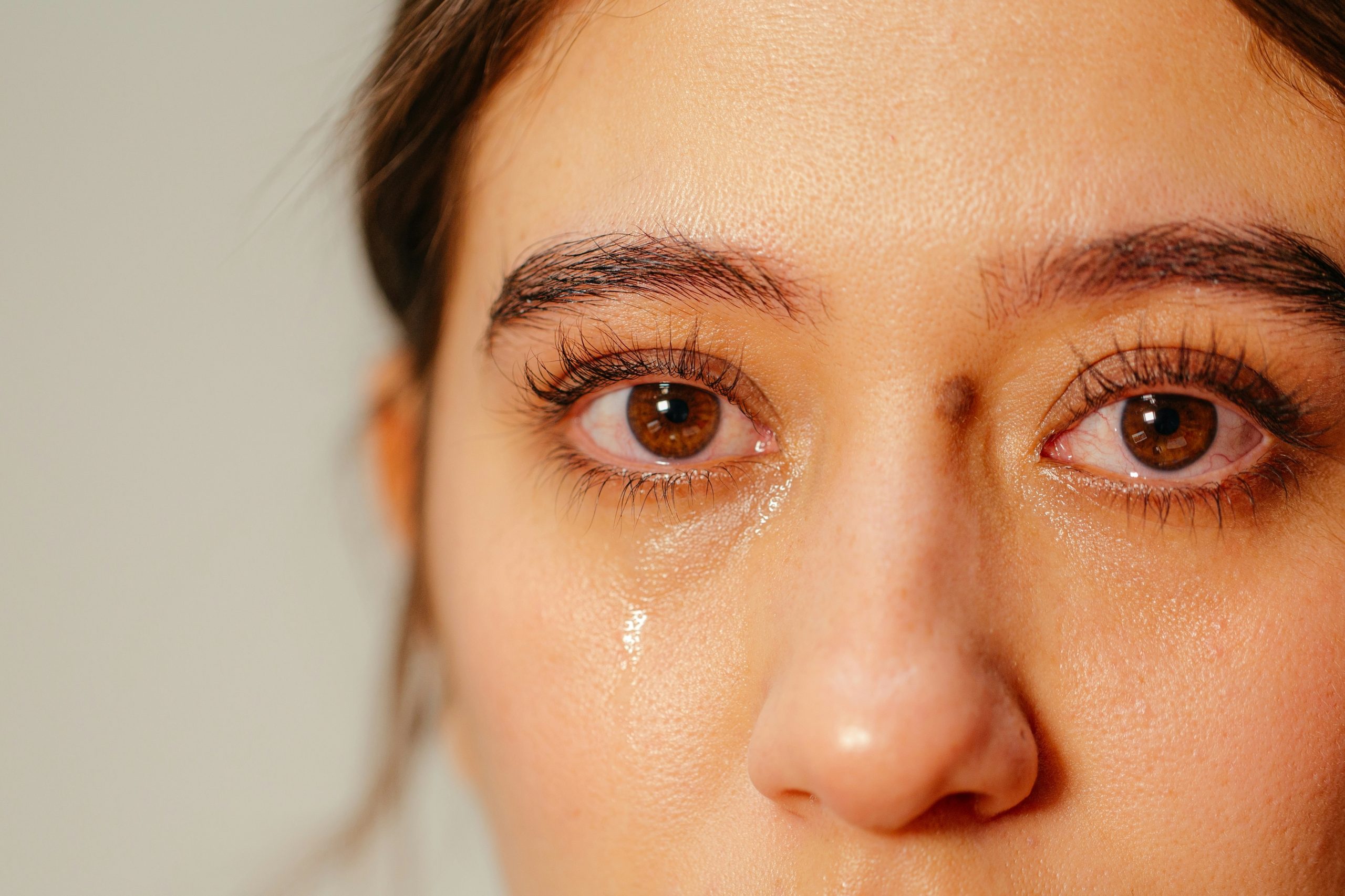By Traciana Graves
Photo by Jonathan Castañeda
Opening Notes
Miscarriage is one of the most profound and isolating experiences a person can endure. While it affects approximately 10% to 15% of known pregnancies, the emotional and physical toll feels uniquely personal, deeply private, and often shrouded in silence. Here, we explore what miscarriage truly means, the paths that may follow, and how to begin the delicate work of healing—both in body and spirit.
-Traciana
The Faces of Hidden Grief
• She sits in the bathroom stall at work, staring at the blood that wasn’t supposed to be there. Just yesterday, she was secretly planning how to tell her partner the news. Now she’s googling symptoms on her phone, trying to understand if her worst fear is coming true, while her colleagues chat about lunch plans outside the door.
• At nineteen weeks, they had names picked out and a nursery half-painted. The anatomy scan was supposed to be joyful—finding out if they needed pink or blue paint. Instead, they’re driving home in silence, facing decisions they never imagined having to make.
• She’s lost three pregnancies now, each one leaving her more afraid to hope than the last. Friends offer well-meaning advice about relaxation and positive thinking, not understanding that her body feels like a stranger she can’t trust.
These aren’t rare stories—they’re the hidden experiences of millions who navigate pregnancy loss in a culture that celebrates beginnings but struggles to acknowledge endings. Miscarriage isn’t just a medical event; it’s the collision of hope and biology, of dreams and reality, of what was supposed to be and what is.
What Happens When Hope Meets Biology
A miscarriage is medically defined as the loss of a pregnancy before 20 weeks, with the vast majority occurring in the first trimester. But this clinical definition barely captures the emotional complexity of what actually happens to a person when their body and their hopes diverge so dramatically.
The statistics tell part of the story: approximately 1 in 4 pregnancies end in miscarriage, making it one of the most common pregnancy complications. Yet despite its frequency, miscarriage remains wrapped in silence, shame, and misconceptions that leave those experiencing it feeling profoundly alone.
When Loss Arrives Without Warning
Most miscarriages in the first trimester—roughly 80% of all pregnancy losses—occur due to chromosomal abnormalities that are entirely beyond anyone’s control. These genetic variations are nature’s way of stopping pregnancies that wouldn’t have resulted in healthy babies, but this biological logic offers little comfort when you’re living through the loss.
During the second trimester, when miscarriages are less common but still occur, the causes may include maternal health conditions, infections, or structural issues with the cervix or uterus. Sometimes there’s a clear medical explanation; often there isn’t. The absence of answers can be as difficult as the loss itself.
The Physical Reality
Miscarriage manifests differently for everyone. Some experience obvious warning signs—cramping, bleeding, the gradual disappearance of pregnancy symptoms. Others discover the loss only during routine appointments, their bodies still acting pregnant while the pregnancy itself has quietly ended weeks earlier.
The physical process can unfold in several ways:
Natural miscarriage allows the body to complete the process on its own timeline, typically involving bleeding, cramping, and the passage of pregnancy tissue over days or weeks. Many find comfort in allowing their bodies to proceed naturally, though the unpredictability can be emotionally challenging.
Dilation and curettage (D&C) becomes necessary when the miscarriage doesn’t complete naturally or when there are concerns about infection or excessive bleeding. This outpatient procedure removes remaining pregnancy tissue from the uterus, providing closure and medical safety but requiring recovery time.
Medication-assisted miscarriage using drugs like misoprostol helps the body complete the process more quickly than waiting naturally but with more control than surgery. This middle path appeals to those who want some agency in their experience while still allowing their body to do the work.
None of these options is inherently better or worse—they’re different paths through an inherently difficult experience, chosen based on medical factors, personal preferences, and individual circumstances.
The Invisible Wounds: When Bodies and Hearts Both Need Healing
• She returns to work three days after her D&C, answering emails and attending meetings as if nothing happened. Colleagues ask about her “procedure” in hushed tones, not knowing how to acknowledge a loss that was never publicly celebrated. She maintains professional composure while grieving privately in bathroom breaks and lunch hours.
• They’re told they can “try again” in a few months, as if the pregnancy they lost was simply a practice round rather than a baby they had already begun to love. The casual dismissal of their grief by well-meaning family members adds isolation to an already painful experience.
The Emotional Landscape
Miscarriage grief is unique because it involves mourning someone you never got to meet but had already begun to love. It’s anticipatory grief in reverse—grieving not just what was, but what would have been. The birthday parties that won’t happen, the milestones that won’t be celebrated, the person who existed only in potential.
Research shows that 30% to 50% of people experience significant anxiety after miscarriage, while about 15% develop symptoms of depression. Around 10% experience symptoms consistent with PTSD, including intrusive thoughts about the loss, hypervigilance about future pregnancies, and emotional numbing around pregnancy-related triggers.
These aren’t signs of weakness or inability to cope—they’re normal responses to a significant loss that society often minimizes or ignores.
Physical Recovery: More Than Bleeding and Cramping
The physical healing process varies dramatically depending on how far along the pregnancy was and how the miscarriage was managed:
After a natural miscarriage, bleeding typically tapers off within two weeks, but some experience irregular cycles for months afterward. The body’s hormone levels need time to return to baseline, which can affect energy, mood, and overall well-being.
Following a D&C, light bleeding and cramping may continue for several weeks. The risk of infection requires careful monitoring and temporary restrictions on activities like exercise, sexual intercourse, and tampon use. Most people can return to normal activities within a week, though emotional readiness may take much longer.
Post-medication protocols involve similar physical recovery timelines, with follow-up appointments to ensure the miscarriage completed successfully and to monitor for complications.
Beyond these immediate concerns, many experience longer-term physical effects: persistent fatigue, changes in menstrual cycles, heightened sensitivity to pregnancy hormones, and a complex relationship with their body’s trustworthiness.
The Path Forward: Healing in Your Own Time
Honoring the Complexity of Grief
Miscarriage grief doesn’t follow neat timelines or predictable stages. Some days the loss feels manageable; others, it overwhelms without warning. Some people want to talk about their experience; others need privacy to process. Some find comfort in rituals and remembrance; others prefer to focus forward.
All of these responses are valid. Grief is not a problem to be solved but an experience to be lived through, at your own pace and in your own way.
Creating Space for Healing
Emotional recovery often requires intentional support. This might look like individual therapy with someone who specializes in reproductive trauma and loss, joining support groups with others who understand the unique nature of pregnancy grief, or simply allowing yourself to feel the full range of emotions without judgment or rush.
Self-care during this time isn’t about bubble baths and positive thinking—it’s about basic survival and gentle nourishment. Eating when food feels difficult, sleeping when your mind won’t quiet, moving your body in ways that feel supportive rather than punishing.
Some find meaning in creating rituals to acknowledge their loss: planting trees, writing letters, making donations, or marking due dates with intentional remembrance. Others prefer to channel their energy into advocacy, supporting research, or helping others navigate similar experiences.
The Question of Trying Again
Most healthcare providers recommend waiting for at least one full menstrual cycle before attempting another pregnancy, primarily to allow accurate dating of future pregnancies rather than for medical safety reasons. However, physical readiness and emotional readiness operate on entirely different timelines.
Some people feel ready to try again immediately, viewing another pregnancy as a path toward healing. Others need months or years to process their loss before feeling emotionally prepared for the vulnerability that comes with hoping again. Both responses are normal and valid.
For those who experience multiple miscarriages, additional testing may help identify underlying causes, though many cases of recurrent pregnancy loss remain unexplained even after extensive evaluation.
Building Hope on Realistic Foundations
The vast majority of people who experience miscarriage go on to have successful pregnancies, but this statistical comfort can feel hollow when you’re living through loss. Hope after miscarriage is often more complex and cautious than the innocent optimism that may have preceded the loss.
Future pregnancies may involve more frequent monitoring, increased anxiety, and a hard-won appreciation for the precariousness of early pregnancy. This heightened awareness isn’t pessimism—it’s realistic hope, built on the foundation of experience rather than assumption.
Breaking the Silence
Why Your Story Matters
Miscarriage thrives in silence, growing more isolating and shameful when hidden. When people share their experiences—whether publicly or in trusted circles—they help normalize a reality that affects millions but is rarely discussed openly.
Your story doesn’t need to be inspiring or educational to be valuable. It doesn’t need to have a happy ending or profound lessons. It just needs to be true, and to be witnessed by others who understand.
Supporting Others Through Loss
If someone in your life experiences miscarriage, the most helpful thing you can offer is presence without solutions. Acknowledge their loss directly rather than avoiding the topic. Say their baby’s name if they had chosen one. Remember significant dates like due dates and loss anniversaries.
Avoid phrases like “everything happens for a reason,” “at least you know you can get pregnant,” or “you can always try again.” These well-meaning comments minimize the significance of the specific loss and the specific baby who was loved and wanted.
Instead, try: “I’m sorry for your loss,” “I’m thinking of you,” or “I’m here if you want to talk or if you need space.” Follow their lead about how much they want to discuss their experience.
The Invitation to Heal
Miscarriage forces you to navigate territory that no one prepares you for—the space between what was hoped for and what is real, between the life you imagined and the life you’re actually living. This navigation is inherently difficult, but it doesn’t have to be done alone.
Healing doesn’t mean forgetting or “moving on” as if the pregnancy never mattered. It means integrating the experience into your larger story, allowing it to change you without defining you completely. It means learning to hold both grief and hope, loss and possibility, in the same heart.
Your timeline is your own. Your process is your own. Your grief is as valid as your love, and both deserve space, time, and gentle care.
You are not broken. Your body is not broken. Your heart may be tender, but it is not irreparable. And you are not alone in this journey, even when it feels impossibly solitary.
The path forward may look different than you imagined, but it is still a path forward. And you have everything you need within you to walk it, one careful step at a time.
If you’re navigating pregnancy loss, know that support is available. Consider reaching out to organizations like Resolve, Share, or local grief counselors who specialize in reproductive trauma. Your experience matters, your grief is valid, and your healing is possible.
About the Happiness 360 Editorial Team: The H360 Editorial Team researches modern professional challenges, synthesizing insights from psychology, neuroscience, and business strategy to provide actionable intelligence for high achievers.
Disclaimer: This content is for informational purposes only and is not intended as medical or psychological advice. If you're experiencing persistent overwhelm, please consult qualified mental health professionals for personalized guidance.
Read our full disclaimer →






















0 Comments for “Understanding Miscarriages: A Compassionate Guide for Healing and Recovery”